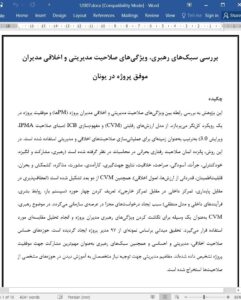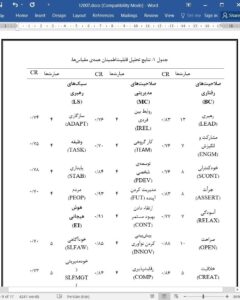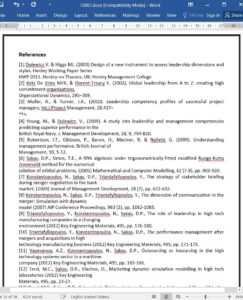Abstract
This study examines the relationship between behavioural and managerial competency profiles of Project Managers (PMs) and project success in a holistic approach. The Competing Values Model (CVM) and ICB conceptualization (IPMA Competence Baseline, Version 3.0) served as the ground for the operationalisation of managerial and behavioural competencies, respectively. In this way, fifteen critical behavioural competency elements were taken into account (leadership, engagement & motivation, self-control, assertiveness, relaxation, openness, creativity, results orientation, efficiency, consultation, negotiation, conflict and crisis, reliability, values appreciation, ethics). CVM is constituted from two dimensions (Flexibility versus Stability, Internal versus External Focus), defining four quadrants (Open Systems, Human Relations, Internal Processes, Rational Model) that address distinct demands in the organizational arena. Regarding leadership, CVM has also been utilized as a device for mapping Project Managers’ leadership profiles and conducting comparative analysis. The field research was based on a sample of 97 Project Managers. The crucial behavioural, managerial and emotional competency areas as well as the leadership styles contributing most to project success have been detected. The managerial implications derived justify the need for practitioners to be trained in specific categories of competencies.
1. Introduction
Building on the behavioural, contingency and the competency school, this study aims to shed light on the compelling notion that the Project Managers’ (PMs) competency profile influences the performance of their organization (i.e. [1,2,3,4]). Recently, the identification of the relationships between managerial success and individual attributes, as well as the investigation of the linkages between managerial performance and specific competencies has attracted research interest [4, 5].










